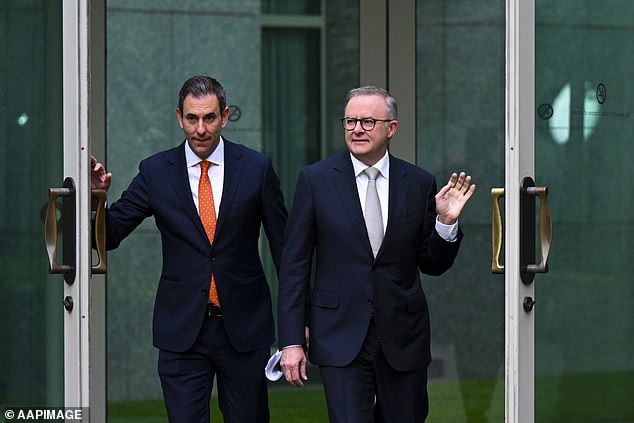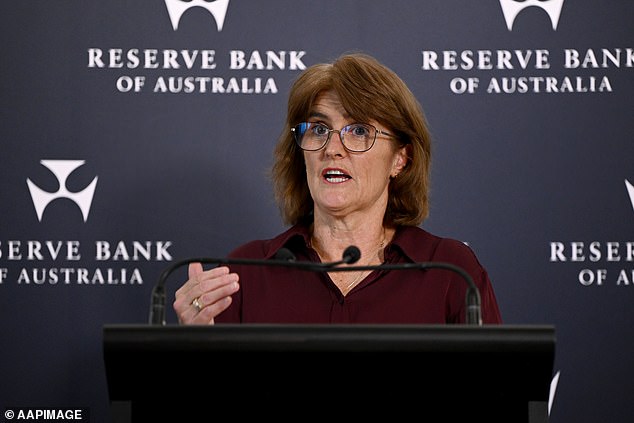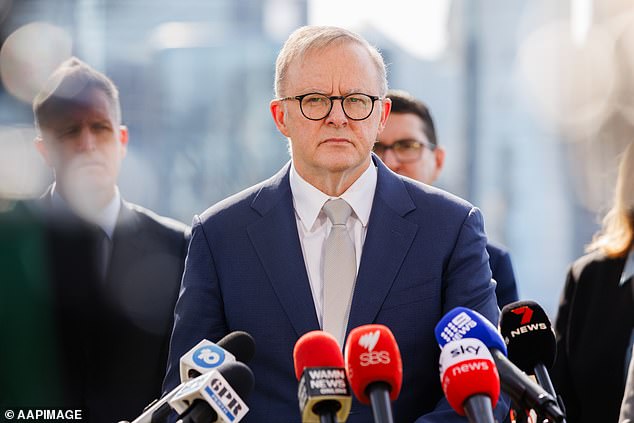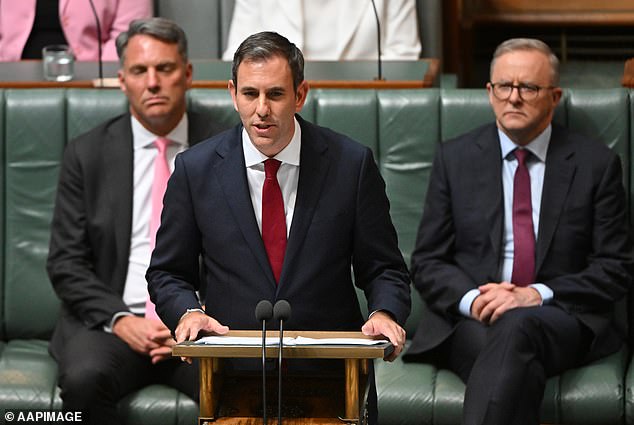- Budget Balancing Act: Spend and NOT Stoke Inflation
- Albo’s future could depend on how this budget is received
- A surplus today but structural deficits in the future
The 2024 Budget will be Treasurer Jim Chalmers’ day in the sun, but no one will be watching more closely how it is received in the coming weeks than the Prime Minister.
Anthony Albanese has more to gain (or lose) than anyone. His future could well be at stake if voters are disappointed in these difficult economic times.
No first-term government has lost a bid for re-election in this country since 1931, so on that basis Labor should feel confident that a second term awaits.
But in recent decades many have almost lost after one term, including the last Labor government when Julia Gillard managed to become a minority government in 2010.
Speaking to Chalmers before writing this column, he seemed optimistic about the budget he is raising, but aware of the challenges.
On Tuesday afternoon, Treasurer Jim Chalmers (pictured) will deliver his third budget.
“What we’ve tried to do here, Peter, is to really keep an eye on the business cycle rather than the political cycle,” Chalmers told Daily Mail Australia.
If you believe that, you’ll believe anything: a politician ignoring politics? This could be the last Budget before the next elections. But perhaps the budget will satisfy on both fronts, economic and political.
Politically, Chalmers needs to ease the cost of living for Australians, but he must do so without stoking inflation and therefore risking raising interest rates as well.
It is an almost impossible task and achieving the right balance is like walking a tightrope. This is Chalmers’ burden.
The reward, if you do well, is credit for any subsequent political success. However, failure would not only jeopardize the government but would also be a blow to the Treasurer’s future leadership ambitions.

The political fortunes of the Prime Minister and the Treasurer are linked to each other and to the success of this year’s budget.
More than two years in government make it harder for Labor to attribute bad economic news to its predecessors. Especially when a conga line of independent economists line up to blame “sticky” inflation on domestic factors rather than international factors.
There have been ten consecutive interest rate rises under the leadership of the Labor Party, but because the trend began while the Morrison government was still clinging to power, the blame was shared.
The Labor Party’s efforts to absolve itself of blame were facilitated by the honeymoon effect. New governments always enjoy that period after coming to power.
Fast forward to today, and the political landscape as we move toward the 2024 budget is very different.
The income tax cuts that the Coalition legislated with Labor support (before Chalmers amended them) will come into force on 1 July. Chalmers calls them “the cornerstone of the entire budget.”
Voters will no doubt welcome the extra money in their pockets to help cope with rising prices. But will Labor get the credit for it? And will voters even remember to give them credit before the next election?
They will certainly notice another rise in interest rates if that happens, or if inflation persists so that prices continue to rise faster than salary packages.

RBA Governor Michele Bullock (pictured) has signaled that interest rates may need to be raised if inflation is not better controlled.

The Prime Minister takes a back seat during budget week but will be watching the public’s reaction closely (Anthony Albanese pictured)
If Reserve Bank Governor Michele Bullock even alludes to inflation remaining “sticky” for longer due to spending in this Budget, Labor will be dealt a serious political blow.
Chalmers has been willing this week to send journalists copious amounts of data demonstrating how fiscally conservative he has been with new spending in the Budget compared to previous treasurers.
It’s nonsense, but it’s also true.
The Treasurer wants Australians to realize that inflation has fallen from its highest levels, but he absolutely knows that it is still too high and that is a problem for everyone.
“It hasn’t worked enough because people are still under a lot of pressure,” Chalmers told me.
So is the Government, and that pressure will only get worse if the Budget drops a lot.


